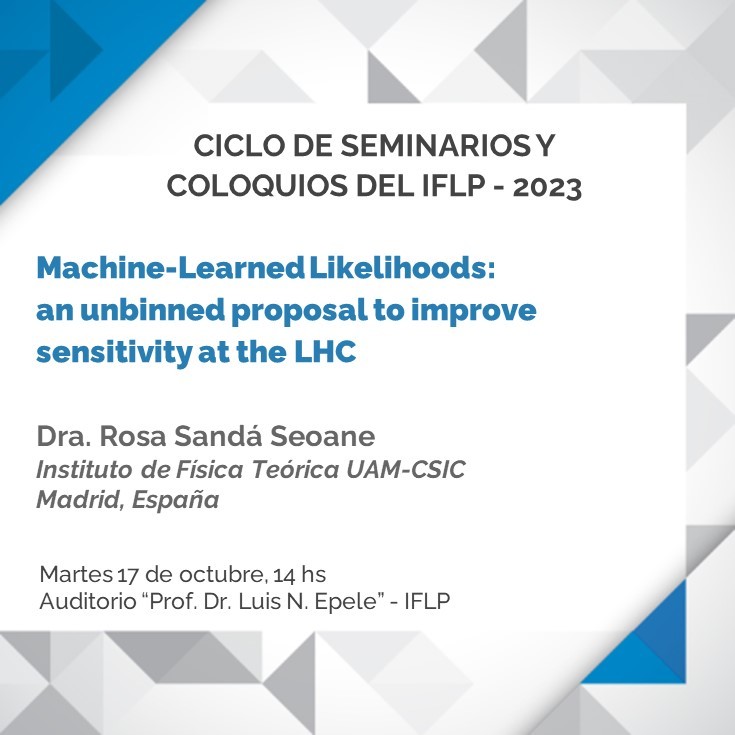Machine-Learned Likelihoods: an unbinned proposal to improve sensitivity at the LHC
Martes 17 de octubre - 14:00 hs

Estimadas/os,
Quedan todas/os invitadas/os al próximo seminario del Ciclo de Coloquios y Seminarios 2023 del IFLP, a realizarse el martes 17 de octubre a las 14hs.
El mismo estará a cargo de la Dra. Rosa Sandá Seoane, Instituto de Física Teórica UAM-CSIC, Madrid, España
Su charla será sobre ¨Machine-Learned Likelihoods: an unbinned proposal to improve sensitivity at the LHC¨.
A continuación enviamos un breve resumen de la misma:
Machine-Learned Likelihoods (MLL) is a method that, by combining modern machine-learning classification techniques with likelihood-based inference tests, allows us to estimate the experimental sensitivity of high-dimensional data sets. We extend the MLL method by including Kernel Density Estimators, to avoid the need to bin the classifier output to extract the resulting one-dimensional signal and background probability density functions, used to estimate discovery and exclusion significances. We first test our method on a toy model of multivariate
Gaussian distributions, where the true probability distribution functions are known. Then we study the impact of MLL on a search of pair-produced scalar leptoquarks with decays only into third-generation leptons at the LHC, in a final state defined by the presence of one hadronically-decaying tau lepton, multiple $b$-jets, and large missing transverse momentum. Thanks to the use of MLL, we consider simple selection cuts which would translate into an improvement in the exclusion limits at the 95$\%$ confidence level for leptoquark masses with different values of their branching fraction into charged leptons. As a novelty in this type of phenomenological approach, we also include a simplified estimation of some systematic uncertainties in the implemented unbinned analysis with the aim of studying their possible impact on the stability of the results.
El seminario tendrá lugar en el auditorio ¨Prof. Dr. Luis N. Epele¨ del IFLP, sito en la diagonal 113 entre 63 y 64.
Esperamos contar con su participación.